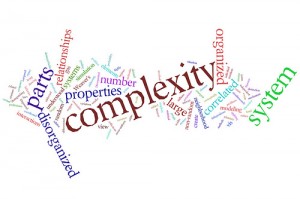By Rose O. Sherman, EdD, RN, FAAN
“We cannot solve our problems with the same thinking that we used when we created them.” Albert Einstein
 A nurse leader recently presented an interesting dilemma to me. One of his young staff nurses was thinking about buying a home. She came to him and wanted to be certain that her job was secure and her hours would not be cut before she committed to taking out a mortgage. “Ten years ago, I could have said with certainty that her job was secure, and she should buy the home. Today, I am find myself being much more cautious in offering any guarantees about what the future will bring. We work for a great organization that is committed to staff and will do the right things, I told her. Yet, this young staff nurse wanted a level of absolute certainty that I could not give her. I know better than to make promises that I may not be able to keep.”
A nurse leader recently presented an interesting dilemma to me. One of his young staff nurses was thinking about buying a home. She came to him and wanted to be certain that her job was secure and her hours would not be cut before she committed to taking out a mortgage. “Ten years ago, I could have said with certainty that her job was secure, and she should buy the home. Today, I am find myself being much more cautious in offering any guarantees about what the future will bring. We work for a great organization that is committed to staff and will do the right things, I told her. Yet, this young staff nurse wanted a level of absolute certainty that I could not give her. I know better than to make promises that I may not be able to keep.”
It is a complex environment that we live and work in today. Leaders are faced with suspending the need for complete detail and tuning into the dynamic patterns of the situation. Here are five strategies to be a more effective leader in a complex world:
1. Don’t oversimplify complex problems
When there is chaos and great change in systems such as that we have in healthcare today, it can be tempting to oversimplify the problems. Leaders are often more comfortable with linear thinking and relying on what has worked in the past. As the situation becomes more complex, some leaders will try to maintain control through micromanagement. This type of leadership approach does not work in complex environments, where systems are more interdependent and changing. Complexity requires systems thinking, adaptation, releasing the need for total control and developing a comfort zone with ambiguity.
2. Remain transparent about the uncertainty and the unknowns
In the case scenario above, this nurse leader used good judgment in how he presented his advice. He did not attempt to provide a simple yes or no answer to this complex question. He recognized that there could be forces at work in the system down the road that might limit his ability to guarantee full employment to this young nurse. Yet, he was honest in discussing that the organization had an excellent track record of caring for staff.
3. Recognize when there is a need for change and provide direction
It is critical to be a proactive leader in a complex environment. Good nurse leaders learn to read the signposts. There are always signs of problems or change before they actually occur even in the most complex environments. Focusing on making sense of the world is a key leadership skill. Nurse leaders need to establish a viable yet flexible direction in the face of confusion.
4. Use your influence to change that which you can
W. Edwards Deming, the father of modern quality management, once observed that everyone — from the CEO to the front line worker — has influence over 15% of their system. The other 85% is beyond their discretionary control. This is helpful to remember in complex environments so that you spend your time and influence on that which you change. Small changes in complex systems (sometimes referred to as the butterfly effect) can bring about unexpected changes in the system as a whole so never underestimate your influence.
5 . Project optimism
Nurse leaders need to convey optimism and confidence. The upside to complexity and chaos is that it often provides an environment that is open to innovation. Yet, complexity and chaos are unsettling to staff and can lead to great fear. In complex systems, the quality of relationships becomes very important because the system is so interdependent on its parts.
Dr. Tim Porter O’Grady provides some very important advice to nurse leaders about leading in complex environments. “How many nurse leaders realize that their primary work is to help others deal with the changes in their lives and their work? Living in the potential for change is focusing on the journey or work rather than the events of work. It is this the journey that should be a leader’s primary focus.”
Read to Lead
Porter-O’Grady, T. & Malloch, K. (2011). Quantum Leadership: Advancing Innovation, Transforming Healthcare. Jones & Bartlett Publishers
Wheatley, M.J. (2005). Finding our Way: Leadership for an Uncertain Time. Berrett-Koehler Publishers.
© emergingrnleader.com 2012


 LinkedIn
LinkedIn Instagram
Instagram